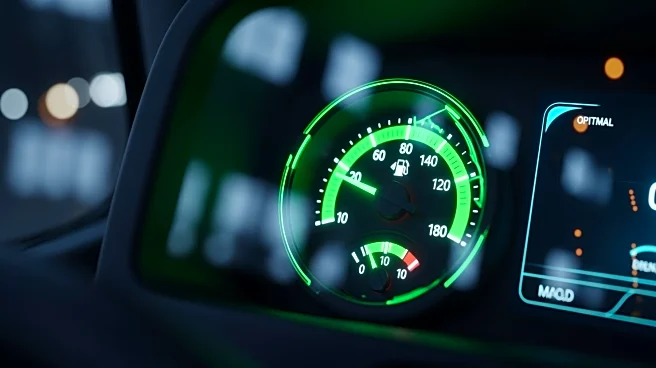What's Happening?
FleetOwner has highlighted strategies to improve fuel economy for diesel trucks, emphasizing the importance of driver behavior and vehicle specifications. The national average for miles per gallon is 6.91, but some fleets achieve higher efficiency, with
examples from the Run on Less event showing trucks averaging up to 11.6 mpg. Key practices include reducing speed, optimizing routes to avoid congestion, and maintaining proper following distances to minimize braking. These measures can lead to a 3% to 5% improvement in fuel economy, translating into significant fuel savings.
Why It's Important?
Improving fuel economy is crucial for reducing operational costs and environmental impact in the trucking industry. Fuel is a major expense for fleets, and even small improvements can result in substantial savings. Enhanced fuel efficiency also contributes to lower emissions, aligning with broader environmental goals. As fleets strive for sustainability, adopting these practices can improve their competitive edge and compliance with regulations. Drivers and fleet managers who prioritize fuel efficiency can benefit financially and contribute positively to environmental conservation.
What's Next?
Fleet managers and drivers are encouraged to adopt these fuel-saving practices and monitor their impact on fuel economy. Sharing successful strategies within the industry could lead to widespread improvements. As technology advances, further innovations in vehicle design and driver assistance systems may offer additional opportunities for efficiency gains. Stakeholders may also explore alternative fuels and hybrid technologies to complement these practices, potentially leading to a more sustainable future for the trucking industry.
Beyond the Headlines
The focus on fuel economy highlights the trucking industry's ongoing efforts to balance cost efficiency with environmental responsibility. As public awareness of climate change grows, companies that demonstrate commitment to sustainability may enhance their reputation and customer loyalty. The integration of technology in optimizing fuel use also reflects broader trends in digital transformation within logistics and transportation sectors.

















